Cervical Smear Tests (PAP) at Tyndall Clinic
In Ireland, women can avail themselves of the national cervical screening programme. It’s free, it’s important, and it’s available through your GP.

In Ireland, women can avail themselves of the national cervical screening programme. It’s free,
it’s important, and it’s available through your GP.
What is a cervical smear/ PAP test?
A cervical screening test (previously known as a smear test or PAP test) looks to see if you might
be at greater risk of developing cervical cancer. Cervical screening is not a test for cancer; it is a
test to check the health of the cervical cells of the cervix. Because these cells change in
appearance before becoming cancerous, a cervical screening test can detect warning signs that
cancer might develop, so that preventative action can be taken.
Through the HSE, women between the ages of 25 and 65 are invited to be part of the national
cervical screening programme, having cervical checks every three to five years, free of charge.
Tests may be more regular should abnormalities be detected.
What happens during cervical screening?
First, everything will be explained to you, you can ask questions, and you’ll need to sign consent
forms.
For the exam, you will need to take off your clothes from the waist down (it may be helpful to wear a loose skirt, then you can just hitch it up). You’ll lie on your back with your legs apart, knees bent, while the nurse or GP inserts a smooth speculum tool into your vagina to gently open your cervix. Then they’ll take a sample of cells using a soft brush. That’s it!
It may feel a little uncomfortable or embarrassing, but it’s quick and generally painless.
The cells are then sent off for laboratory testing.
Register with Cervical Check here to avail of this free screening programme, update your contact details or find out more.
Practices that also provide Cervical Smear Tests (PAP)

Applewood Medical
Applewood Village, Swords, Co. Dublin

Ashbourne Clinic
62 Declan’s Street, Killegland Walk, Ashbourne, A84EP40

Ashford Clinic
Unit 1 Mount Usher Court , Ashford Co Wicklow

Athy Medical
Carlow Road , Athy, R14 X672 , Co Kildare

Ballycane Surgery
Unit 1 & 2, Hazelmere Shopping Centre, Naas, Co. Kildare, W91 AW7D

Ballyowen Medical
Ballyowen Lane, Lucan, Co Dublin

Blackrock Medical
Frascati Centre, Blackrock, Co Dublin, A94 H6V9

Blessington Medical
McGreals Primary Care Centre, Blessington Business Park, Blessington, Co. Wicklow
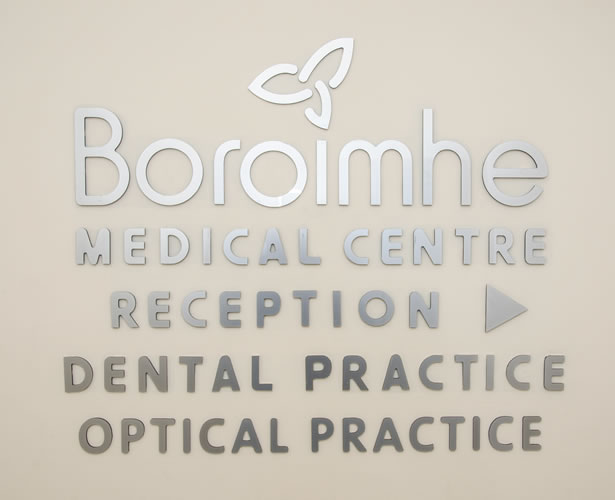
Boroimhe Medical
Forrest Road, Swords, Co. Dublin

Bryanstown Medical
Dublin Road, Martello Village, Drogheda, Co Louth

Carlow Medical
Shamrock Plaza, Green Lane, Carlow, Co Carlow

Castleknock Village Medical
The Square, Castleknock, D15 P3VX

Celbridge Medical
Celbridge Primary Care Centre, Maynooth Road, Celbridge, Co. Kildare, W23 YK24

Churchtown Medical
96 -98 Churchtown Road Upper, Churchtown, Co. Dublin, D14 EW68

Citywest Medical
Unit 5, Citywest Shopping Centre, Citywest, Dublin 24 D24KOYT

Cobh Medical
Cobh Primary Care Centre, GP Surgery, Ticknock, Cobh P24 V621

Corbally Medical
Corbally Medical , Corbally Rd, Limerick, V94 WFX9

Cottage Surgery
New Rd, Bailieborough, Co. Cavan, A82 D2XO

Desmond Medical
Station Road, Gortboy, Newcastle West, Co. Limerick, V42RD76

Dolmen Family Medical Practice
Shamrock Plaza, Green Lane, Carlow, R93 YF70

Donaghmede Medical
Donaghmede Shopping Centre, Grange Road, Dublin 13

Doonmoon Medical
Doonmoon Medical Centre, St Nessan's Road, Dooradoyle, Limerick V94 FCD1
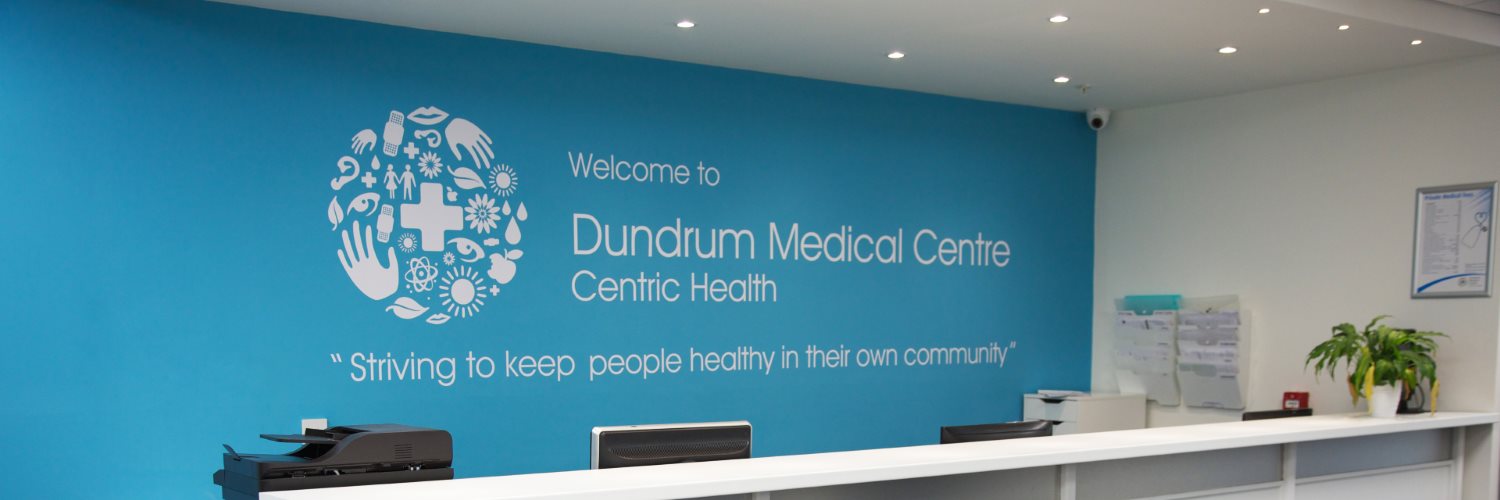
Dundrum Medical
Dundrum Medical Centre, Level 4, Dundrum Town Centre, Sandyford Road, Dundrum, Dublin 16, D16 XC91

Ennis Medical
Francis Street, Ennis, Co Clare V95 KC3H,

Ennis Road Medical
Ennis Road, Limerick

Fairgate Medical
No.6 Lower Ground Floor, Boyne Shopping Centre, Drogheda. A92W990

Finglas Medical
45 - 47 Main Street, Finglas, Dublin 11

Glasnevin Family Practice
11 Finglas Rd, Harts Corner, Glasnevin, Dublin 11, D11PA00

Grafton Medical
Grafton Buildings, 34 Grafton Street, Dublin 2, D02 XY06

Headfort Family Practice
Primary Care Centre, Navan Road , Kells, Co. Meath, A82 H3C7
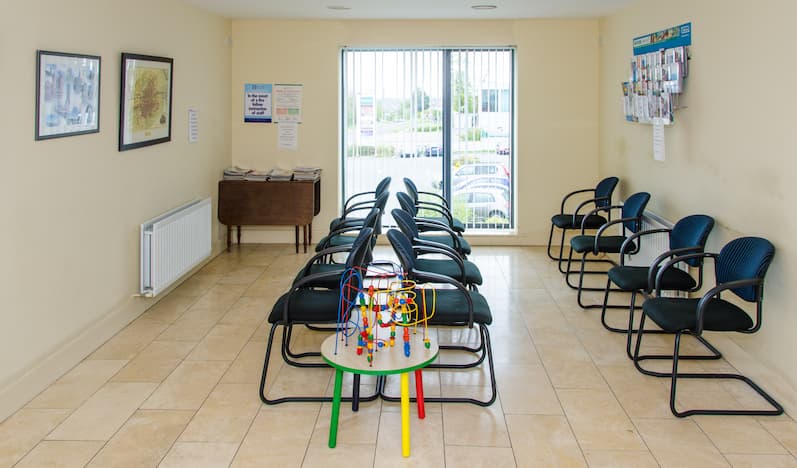
Hilltop Medical
Rathmullan Rd., Rathmullan, Drogheda, A92 KVP8, Co. Louth

Johnstown Medical
Johnstown Road, Dun Laoghaire, Co.Dublin , A96W248

Kilcock Medical
The Bawnogues, Kilcock, Co. Kildare, , W23 XY89

Kilcullen Medical
The Medical Centre, Main Street, Kilcullen, Co Kildare, R56 NV26

Killarney GP
6B Scott St, East Avenue Road, Killarney, Co. Kerry.

Knocknacarra Medical
Clybaun Road, Knocknacarra, Galway, H91 TKF3

Manor Mills Medical
Manor Mills Shopping Centre, Mill Street, Maynooth, Co Kildare W23 V5X5

Maretimo Medical
The Promenade, Upper Salthill Road, Salthill, Co Galway, H91 EW68

Meadow Springs Medical
41a Meadow Springs, Clareview, Limerick, V94 RPA8

Medina Medical
Mill Road, Fermoy, Co.Cork, P61 NN79

Navan Road Medical
Primary Care Centre, Navan Road, Dublin 7, D07 K229

Newbridge Family Practice
Orchard House, Moorefield Road, Newbridge, Co. Kildare, W12Y884,

Newbridge Medical
Station Road, Newbridge, Co. Kildare,

Northgate Surgery
226 Pearse Park, Drogheda, Co Louth, A92 E088
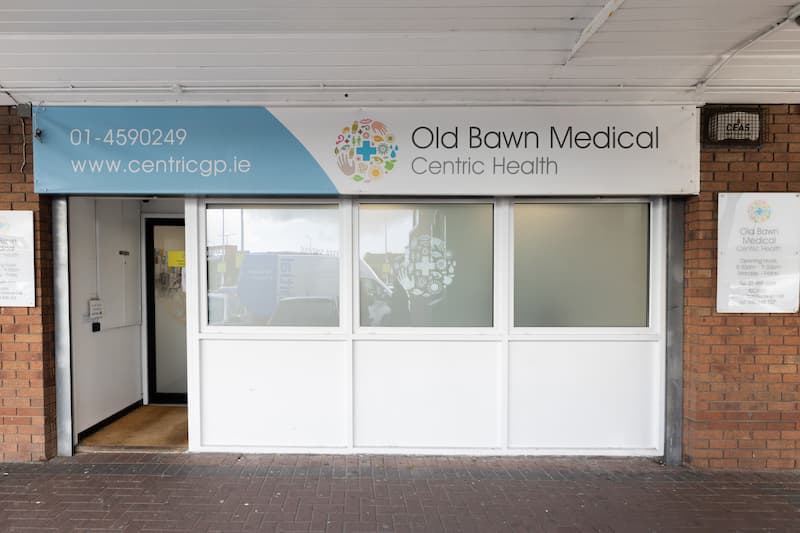
Old Bawn Medical
Unit 2-3 Old Bawn Shopping Centre, Tallaght, D24 HXW3,

Palmerstown Park Medical
Palmerstown Park Medical, Unit 18 First floor Palmerstown Shopping Centre, Palmerstown Dublin 20, D20HP44

Raheen Medical
1 Greaney Close, Raheen, Limerick, V94 V2TT
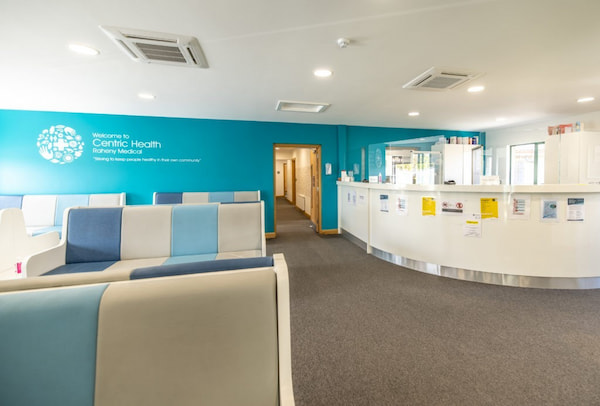
Raheny Medical
1st Floor, Hilltop Shopping Centre, Station Road, Raheny, Dublin 5, D05 F625

Ranelagh Medical
22-26 Sandford Rd, Ranelagh, Dublin 6, D06 KF84

Roshill Medical
Unit 11, Level 1, Briarhill Shopping Centre, Ballybrit, Galway H915W40

Salem Medical
Wicklow Primary Health Centre, Knockrobin, Co. Wicklow, A67 P762

Sandyford Medical
Unit C7, The Plaza, Beacon South Quarter, Sandyford, Dublin 18, D18 TY79

Seapoint Medical
17/18 Seapoint, Barna, Galway, H91F6C9

Sheehan Medical
Unit 301, 3rd Floor, Dun Laoghaire Shopping Centre, Marine Road, Dun Laoghaire, A96 DD74

Southern Cross Medical
Southern Cross Road, Bray, Co. Wicklow, A98 V4K7,

St James’s Gate Medical
114 - 116 James's street, Dublin 8, D08KXN8

Sutton Medical
St. Margaret's, 1 Greenfield Road, , Sutton Dublin 13, D13 H9H6,

Tuskar Medical
St Martins Road, Rosslare Harbour, Wexford Y35 RX62

Terenure Medical
84A Terenure Road East, Terenure, Dublin 6, DA6 W5A2
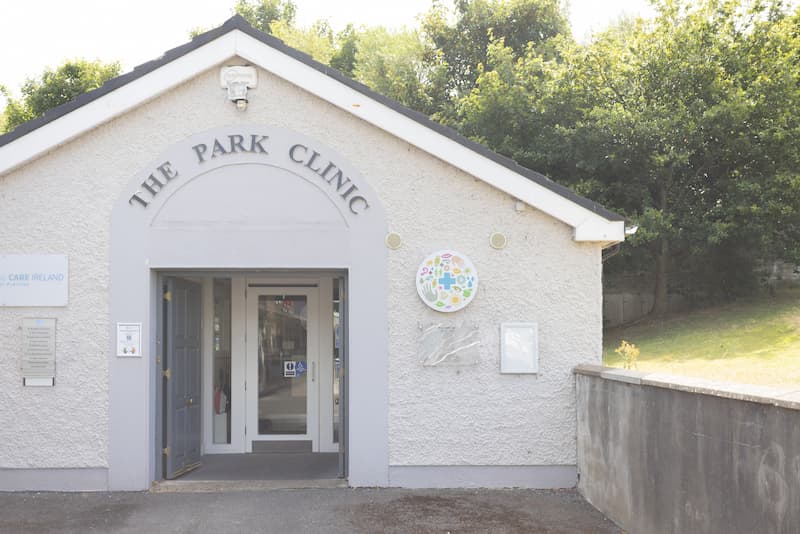
The Park Clinic
The Park, Cabinteely, Dublin 18, D18 C984

The Plaza Clinic
Main Street, Swords, Co Dublin

The Square Medical
1st Floor Elgee Building, Market Square, Dundalk, Co. Louth. A91 YR9X

Tobin Healthcare Centre
Spencer Street, Castlebar, Co Mayo, F23 WV78

Trim Medical
Trim Primary Care Centre, Longwood Road, Trim, C15 PHP1, Co. Meath

Tyndall Clinic
Unit 9B, Barrowvalley Business Park, Sleaty Road, Graiguecullen, Carlow R93 N6W8

Village Medical Centre
Unit 6 Village Shopping Centre, Watery Lane, Clondalkin, D22V2H9

Wexford Medical
2-3 Redmond Square, Wexford, Y35 PF63,

Wherlands Lane Medical
Blackpool, Cork City, T23 APR3,

Willow Park Medical Centre
72 Willow Park Crescent, Glasnevin, Dublin 11, D11 X981

Windmill Court Medical
Windmill Court Medical, Lower Gerald Griffin Street, Limerick V94 CX6H